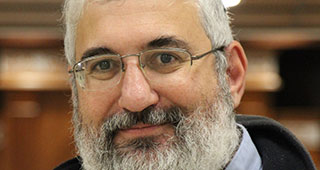Beit Midrash
- Sections
- Chemdat Yamim
- P'ninat Mishpat
Ruling: While def claimed that the agreement was one of renting their name and infrastructure, beit din views it as a franchise relationship. Since this is a common business relationship in our days, such agreements are binding based on convention (see Eretz Hemdah ruling 74070). The kinyan on this arrangement took effect no later than when def received the first down payment on pl’s behalf. This works even though the payment came from a third party, since the money was paid on pl’s behalf (see Shulchan Aruch, Choshen Mishpat 190:4).
Nevertheless, def had the right to back out of the deal due to mekach taut (agreement based on a false premise), as they were not aware that the certification was forged (due to the acute medical crisis, Spain lowered their certification demands, but only after the agreement was discarded). That situation opened all involved to serious liabilities. Such dangers are grounds for breaking agreements (see Shulchan Aruch, CM 196:36). Although this does not apply to flaws that the "buyer" can easily check out, there is no reason to think that def would know this in advance (pl did not know either).
Once def had the right to back out and did, it is no longer considered that def forced pl into the new agreement, rather the new situation did (see Shulchan Aruch, CM 205:12). Furthermore, it was pl who pursued a new agreement, and if pl wanted to (despite the perceived risk), they still had the opportunity to extend their arrangement with com B to this deal as well.
Therefore, pl is not entitled to the additional money that he would have received based on the first agreement.

P'ninat Mishpat (803)
Beit Din Eretz Hemda - Gazit
647 - A Check Passing from Hand to Hand
648 - Can They Change Agreements in the Middle?
649 - Compensation for Questionable Firing
Load More

P'ninat Mishpat: Return of Down Payment Due to War – part II
based on ruling 84044 of the Eretz Hemdah-Gazit Rabbinical Courts
Beit Din Eretz Hemda - Gazit | Elul 5785

P'ninat Mishpat: Can the Tenant Take Off for Theft?
based on ruling 85035 of the Eretz Hemdah-Gazit Rabbinical Courts
Beit Din Eretz Hemda - Gazit | Iyar 5784

P'ninat Mishpat: A Used Car with a Tendency for Engine Problems
based on ruling 84034 of the Eretz Hemdah-Gazit Rabbinical Courts
Beit Din Eretz Hemda - Gazit | Iyar 5784

P'ninat Mishpat: Rental of an Apartment that Was Not Quite Ready – part II
based on ruling 82031 of the Eretz Hemdah-Gazit Rabbinical Courts
Beit Din Eretz Hemda - Gazit | Iyar 5784

Beit Din Eretz Hemda - Gazit

Payment for Not Clearing Warehouse On Time – part II
based on ruling 75076 of the Eretz Hemdah-Gazit Rabbinical Courts
Av 20 5780

Connecting Disciplines in Torah Study
Igrot Hare’aya – Letters of Rav Kook #103 – part II
Sivan 8 5782

Limits of Interest Rate for Loan with Heter Iska – part I
based on ruling 80033 of the Eretz Hemdah-Gazit Rabbinical Courts
Sivan 8 5782

























